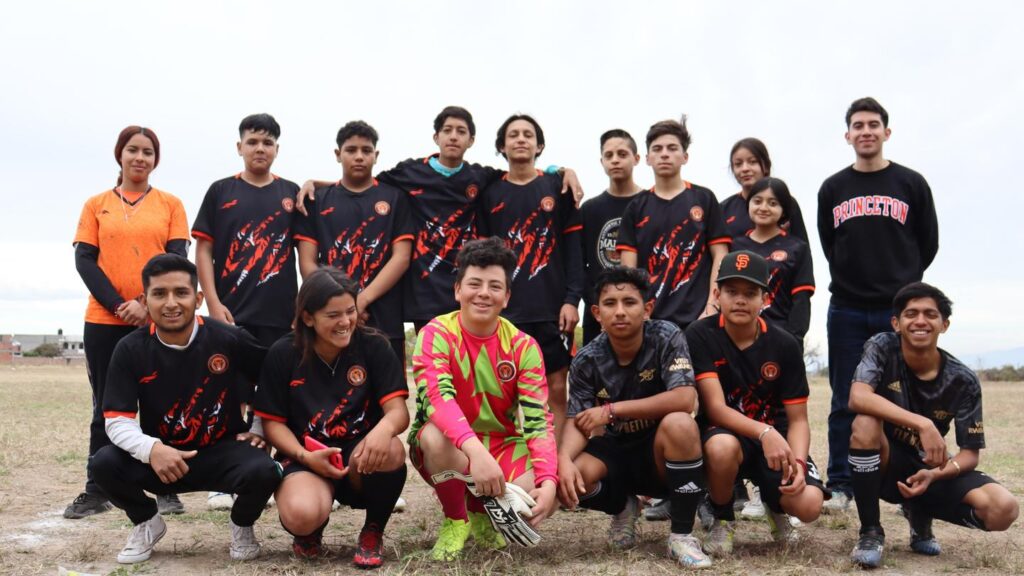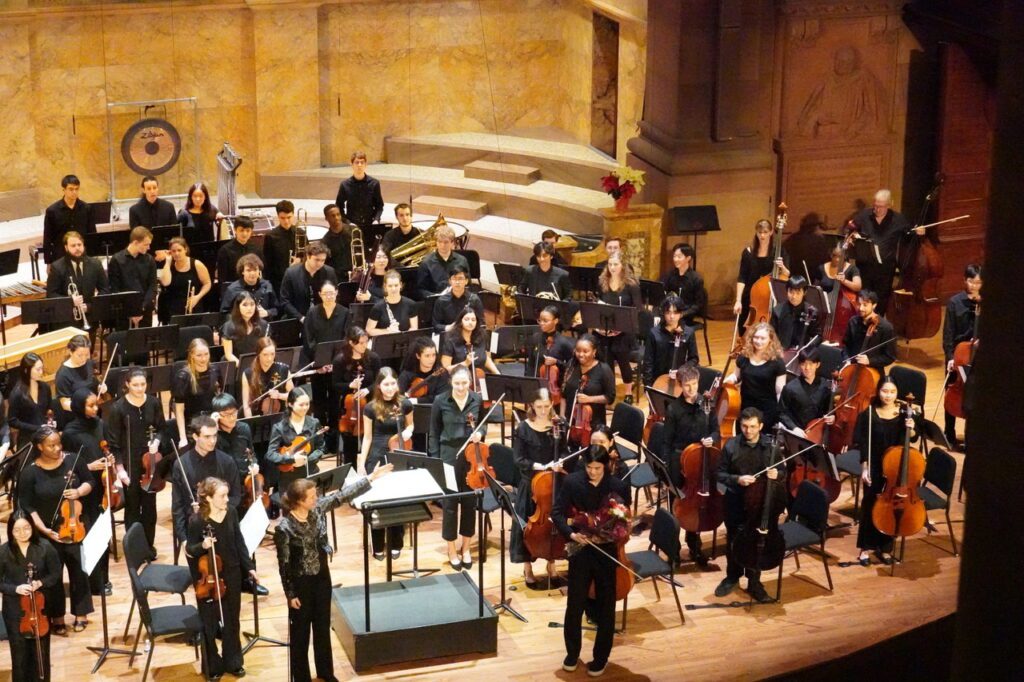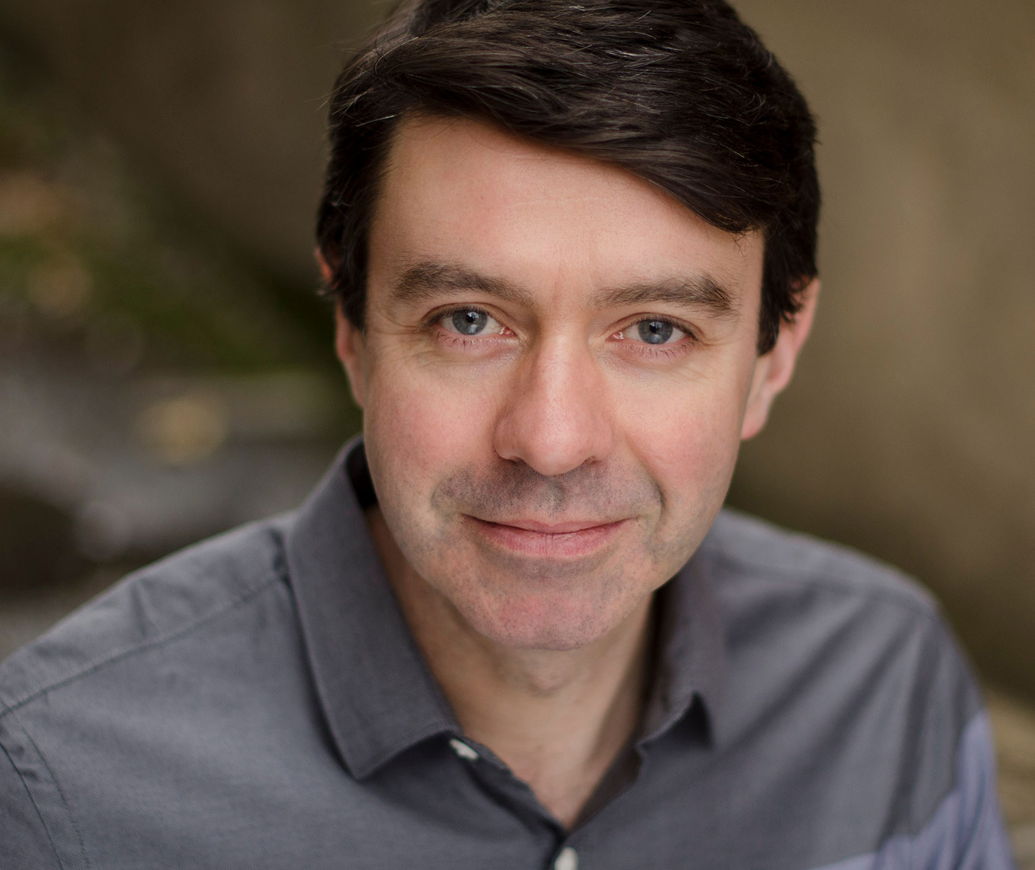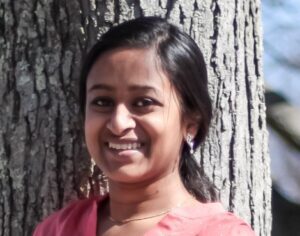The Senior Thesis is an integral part of every undergraduate’s journey at Princeton — an opportunity to dive deep into a topic of the student’s choosing and, under the guidance of a faculty advisor, develop a substantial independent project synthesizing their discoveries. This series celebrates the diversity of senior theses created by our Music Majors.
—
Donnacha Dennehy, Professor of Music
“The thesis provides a wonderful creative opportunity for our students to practice the vital work of the artist.”
Over the past decade, Donnacha Dennehy has advised senior thesis projects ranging from musicals (quite a number of them, including one by current advisee Halle Mitchell) and operas to choral compositions and chamber music to original albums. The common thread is composition — Dennehy himself is an award-winning composer with works encompassing operas (hence the music theater draw), docu-cantatas, chamber music, and more — but to distill these diverse projects down to “composition theses” somehow feels lacking. What Dennehy has been struck by year over year is the remarkable creativity and intellect with which each of his advisees has approached this culminating moment in their Princeton years — that, and also the exciting new directions toward which they are driving our world.
“The thesis allows us as advisors to get a sense of who the students are and what they’re capable of. Simultaneously, it allows us to stay attuned to what’s interesting to a new generation creatively, such as the general trend toward cross-discipline work with a theatrical component to music-making.”
Below are two of Dennehy’s advisee stories: Shruthi Rajasekar (’18), a choral composer with a transatlantic career whose works are performed at such venues as London’s Royal Albert Hall, and Emily Liushen (’22), a more recent graduate now studying composition at Yale’s School of Music.
Shruthi Rajasekar (’18)
Gaanam: an SATB celebration of singing
Many of the theses produced by Music Majors consist of a certain degree of intersectionality — a bridging of genres, cultures, and voices. Shruthi Rajasekar’s senior thesis, entitled Gaanam: an SATB celebration of singing, was a sort of “collision,” as Dennehy describes it, between South Indian and Western classical traditions, performed in the languages Telugu and Tamil and incorporating South Indian Carnatic patterns of melodic gamakams and rhythmic konnakol.
“I remember being knocked sideways by what Shruthi was producing —by the sheer vitality of it. In the interrogation of these two traditions, she created something really unique and impressive.”
Rajasekar grew up in these musical idioms — her mom, Nirmala Rajasekar, is among the world’s leading Saraswati veena players — and she was curious to see how the two might blend together as a means of encouraging unity through music.
Dennehy himself was familiar with South Indian vocal traditions, having paired patterns from the Carnatic tradition with rhythmic patterns of his own Irish heritage years prior in what he refers to as a “wild” percussion piece. But his knowledge nowhere near approached the depth of insight and expertise exhibited by his advisee.
Dennehy did, however, have vast experience in the sort of cultural dance of existing in two musical worlds. Dennehy came to America from Ireland on a Fulbright at a time when our world was less globally-connected than we are today. “Living in a different country,” he says, “has a radical effect on you.” Rajasekar herself spent the fall semester of her junior year studying at London’s Royal College of Music through one of the Music Department’s study abroad programs, and this immersion in a country with a large Indian diaspora and a strong performing arts tradition in Indian music — and in choral music — no doubt influenced her thinking once she returned to campus.
“I think it’s great to go to a different country for part of your studies. You encounter a totally different framework for how you deal with your work.
After graduating, Rajasekar returned to England to continue her studies, building on the groundwork of her thesis and developing a framework for the work she continues to create as a composer today.
“Devoting a prolonged period of time to a creative pursuit — learning how to tease out a world through one’s artistic work — holds such value for the students.”
Today, Rajasekar is a rising star known for her Carnatic-influenced works; and we couldn’t agree more that she is indeed a composer “who will enrich your life” (The Guardian).
Emily Liushen (’22)
Clarinet Quintet
A more recent alum, composer Emily Liushen (’22) approached her senior thesis from a different perspective than Rajasekar and many other Music Majors.
Liushen had enjoyed creating experimental musical works throughout the first three years of her Princeton experience. Her assignment submissions in courses MUS 106 and MUS 310, both taught by Dennehy, were consistently varied and boundary-pushing, and for her junior independent work, too, she developed a radical and experimental work: a musical radio play based on Sarrasine by Balzac (advised by Dennehy).
“Emily was always producing this incredibly inventive musical work. She’s always stood out for her compositional imagination.”
But for Liushen’s thesis, she wanted to challenge herself and to prove both to herself and others that she could produce music of a less experimental, but nevertheless beautiful and moving nature. She worked with Dennehy to ground her compositional impulses within her experience playing as a chamber musician in such ensembles as Princeton Camerata and Opus Chamber Music.
“The seniors are young composers, and their compositional voices are changing and evolving. What I try to do as an advisor is to encourage what the students are trying to say artistically and then to help them develop the techniques to do so.”
With Dennehy’s guidance, Liushen developed a new vocabulary for her compositional voice and composed what Dennehy praises as a “novel” clarinet quintet of aching beauty.
In Other News

What Six Senior Music Majors’ Say About Their Theses
May 16, 2024
As we near the final weeks of spring semester and anticipated graduation for the Class of 2024, the Music Department asked six Senior Music Majors to expand on their creative thesis, as well as share words of encouragement to future students.

It takes a village: Projects for Peace winner Carlos Cortez ’24 and the people of Zináparo bring music and soccer to their youth
Jan 23, 2024
It takes a village: Projects for Peace winner Carlos Cortez ’24 and the people of Zináparo bring music and soccer to their youth

Student Perspectives: The Musical Odyssey of Princeton’s Adrian Thananopavarn
Jan 18, 2024
Adrian P. Thananopavarn ’24, Math major with certificates in Computer Science and Music Composition, premieres “March of Dusk” with Princeton University Sinfonia




